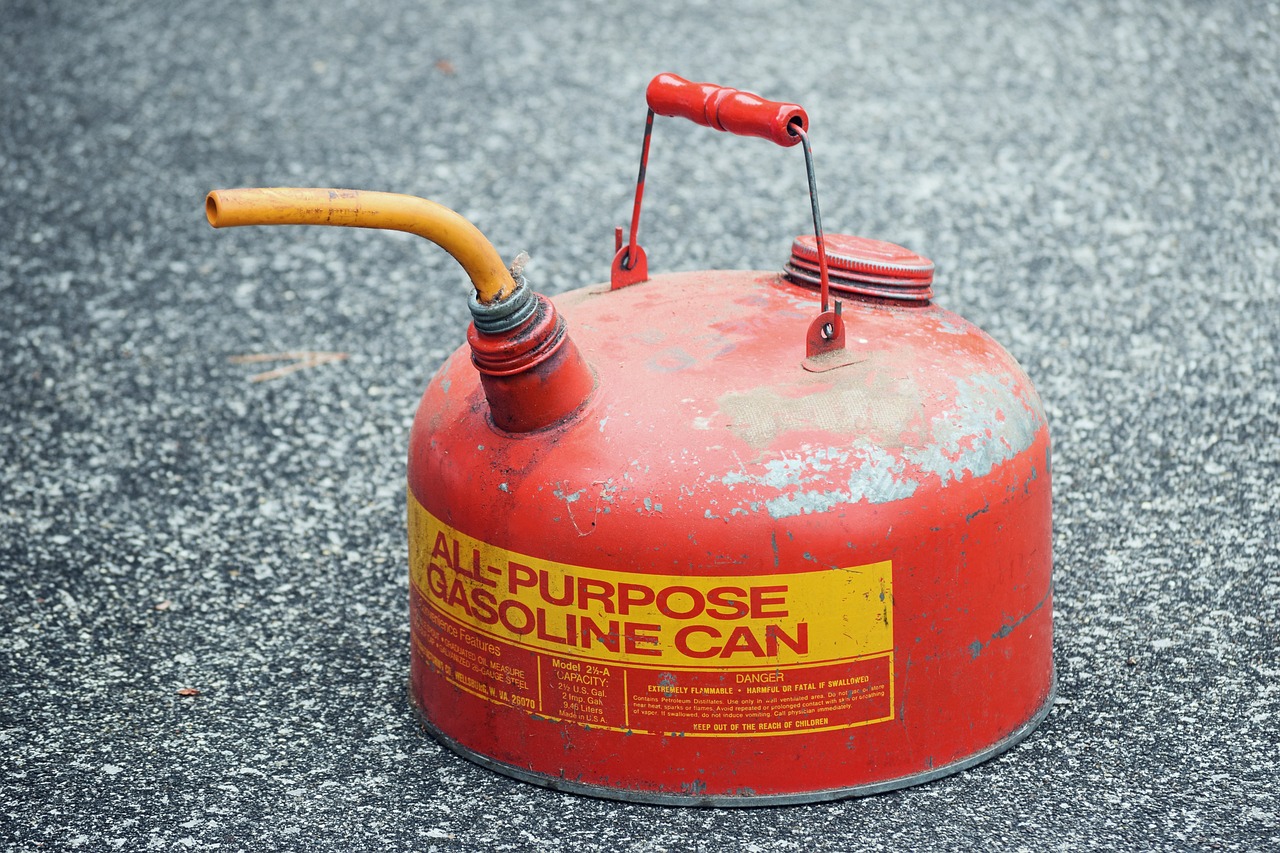A gentleman named Chuck resided in the sultry heartland of Florida amid the rhythm of swaying palms and the relentless chorus of cicadas. Chuck was far from your everyday Floridian. While his neighbors grappled with typical concerns like the looming hurricane season or recent alligator sightings, Chuck was preparing for a storm of a different nature: the apocalypse.
For a significant time, the media convinced Chuck that the world’s end was imminent, and he was determined to be prepared. His survival kit didn’t feature canned food or a subterranean hideout; instead, it was packed with more explosive: gasoline. Chuck had accumulated a vast gasoline storage unit, transforming his humble abode into a maze of plastic containers and drums and even repurposed children’s swimming pools brimming with fuel. In his mind, this precious liquid would be his currency in the dystopian world he foresaw, where gasoline could be bartered for necessities or employed to facilitate his escape from the turmoil.
However, Chuck’s strategy had a couple of, shall we say, “drawbacks.” Primarily, his dwelling had morphed into a fire risk that would make even the most courageous firefighter hesitate. Preparing a meal became a game of Russian roulette, and the local community began wagering on the inevitable inferno’s timing.
However, the crowning jewel in Chuck’s ill-conceived preparations was an overlooked detail: gasoline deteriorates over time. The stockpile Chuck had accumulated over the years wasn’t a cache of essential survival resources but a collection of drums filled with a sticky, useless residue. This wasn’t the potent liquid capable of powering a makeshift vehicle across the desolate wastelands of his dreams. Instead, this was more akin to a post-apocalyptic adhesive for the mutant roaches expected to claim the earth.
The truth dawned on Chuck one steamy afternoon as he tried to funnel what he believed to be gasoline into his reliable generator, only to have it choked by a substance resembling molasses and reeking of failure. It was a moment of profound clarity for a man who had spent much of his life inhaling fumes and avoiding spark-induced disasters.
But who would want to spend their apocalypse inhaling toxic fumes? Certainly not Chuck, as he stood there, hands coated in a sticky mess, contemplating the sequence of decisions that had led him to this point. Then, he experienced a revelation that would forever alter his approach to post-apocalyptic preparation. Instead of accumulating gasoline, he would invest in something far more sensible and less likely to transform his home into a smoldering crater: solar panels.
In the following weeks, Chuck embarked on a new mission that required him to dispose of his now worthless gasoline collection and replace them with solar panels and wind turbines. He turned into a renewable energy advocate, extolling the virtues of solar power to anyone who would lend an ear (which, in Florida, mainly was perplexed alligators and the occasional storm chaser).
As for the drums of sticky residue that once cluttered his home, Chuck found an innovative solution for that, too.
He launched a business dealing in post-apocalyptic-themed sticky pest traps, which he marketed as “Chuck’s Apocalyptic Goo Traps.” These became popular among Florida’s quirky inhabitants, who valued utility and sheer ridiculousness.
Eventually, Chuck evolved into a sort of local myth—a man who had geared up for the world’s end in the most quintessentially Floridian way, only to find salvation in the sun’s power. His story served as a humorously instructive tale, a parody of survivalism that reminded everyone who heard it about the value of pragmatism, the perils of hoarding, and the unpredictability of residing in the Sunshine State.
So, as the sun dips below the marshlands and the cicadas maintain their everlasting symphony, recall the story of Chuck, the man who endeavored to outwit the apocalypse with gasoline and ended up championing renewable energy. It’s a tale that could only unfold in Florida, where the bizarre intersects with the mundane, and even the most ill-advised schemes can lead to unforeseen enlightenment.

